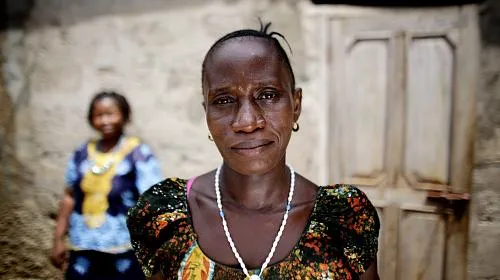Bipartisan bill will ensure that gender-based violence is a top U.S. foreign policy priority
WASHINGTON (Nov. 14, 2017) – The global poverty-fighting organization CARE today welcomes the introduction of the International Violence Against Women Act (IVAWA) by Sen. Jeanne Shaheen (D-NH), Sen. Susan Collins (R-ME), Sen. Johnny Isakson (R-GA) and Sen. Bob Menendez (D-NJ). This bipartisan bill will raise awareness for the women and girls around the globe who face violence on a daily basis and ensure that addressing gender-based violence is a cornerstone of U.S. foreign policy.
The statistics are staggering: An estimated one in three women will face physical, mental or sexual abuse in their lifetimes. Nearly 39,000 girls are married each day, and female genital cutting has impacted more than 200 million women and girls alive today. Each of these practices and other forms of violence against women have an immeasurable impact on women and girls, their families and their communities. IVAWA elevates the importance of these issues and places them at the center of U.S. foreign diplomacy. This hallmark bill empowers the United States to work with other countries to prevent violence against women and girls and respond to the effects of these practices on societies and economies. It holds governments accountable for acting to end rampant violence while elevating the voices of women and girls to advocate against it.
“IVAWA recognizes that violence against women and girls is embedded in cultural and societal norms of unequal status and power, requiring a long-term approach that fosters personal, community and societal changes,” said David Ray, vice president for policy and advocacy at CARE. “The solutions to preventing and responding to such violence require all of us — advocates, elected officials and international leaders — to stand in solidarity across the globe to end gender inequality and address the injustice of violence.”
CARE applauds the introduction of this urgent bill. Now more than ever, women and girls deserve a chance to live a life free from violence. CARE urges Congress to swiftly consider and pass the International Violence Against Women Act to empower women and girls, along with their communities and nations, to end gender-based violence.
ABOUT CARE
Founded in 1945, CARE is a leading humanitarian organization fighting global poverty. CARE places special focus on working alongside poor girls and women because, equipped with the proper resources, they have the power to lift whole families and entire communities out of poverty. Last year, CARE worked in 94 countries and reached more than 80 million people around the world. To learn more, please visit www.care.org.
Media Contacts
Nicole Ellis, +1-202-560-1791, nicole.ellis@care.org

